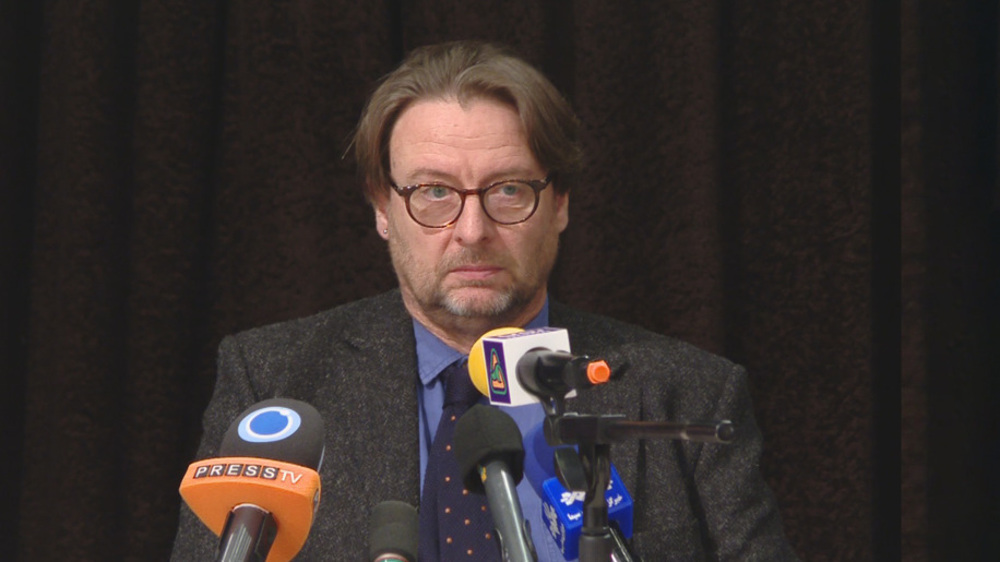UK may need Brexit transition period, but it will not be unlimited: May
UK Prime Minister Theresa May has said that Britain may need an implementation phase to smooth its exit from the European Union.
“When we know what the future relationship with the EU will be, we may need implementation periods,” May told parliament on Wednesday.
“But I am very clear, this does not mean unlimited transitional phase: We are going to leave the European Union. That's what people wanted and that's what we will deliver,” she added.
On Monday, May secured her grip on power after Conservatives struck a deal with Northern Ireland's Democratic Unionist Party (DUP) which will see them support her minority government.
The governing agreement was announced two weeks after the prime minister’s party lost its parliamentary majority in the botched June 8 snap election.
Read more:
The opposition Labour and Liberal Democrat parties are calling for amendments to May’s pared-down program which she outlined last week.
With regards to the Grenfell tower incident that killed 79 people in mid June, May said that 120 tower blocks had failed fire and that there was a wider fire safety issue that was the result of failures over many decades.
Corbyn warned that the tragedy has “exposed the disastrous effect of austerity”.
Corbyn said, “This disregard for working class communities, the terrible consequences of deregulation and cutting corners - I urge the prime minister to come up with the resources needed to test and remove cladding, retrofit sprinklers, properly fund the fire service and the police so that all our communities can feel safe in their own homes.”
Read more:
May responded by outlining what she said was the longer-term political background to the cladding issue, saying “It's an issue that has been continuing for many years, for decades, in terms of cladding being put up in buildings. There are real questions, as to how this has happened, why it's happened and how we can ensure that it doesn't happen in the future.”
May had called for a snap election in April in hopes of getting an increased parliamentary majority that could have strengthened her position before going into two years of intense negotiations with the European Union about Britain’s departure from the bloc.
However, British voters dealt her a devastating blow, wiping out her parliamentary majority and throwing the country into political turmoil.

HTS in Syria says to recognize Israel by end of 2026

UK police question Holocaust survivor for attending pro-Palestine demo

There will be no escape from justice: Pro-Palestinian UK scholar to Zionist genocidaires
Pezeshkian hails Iran-Azerbaijan ties ahead of visit to Baku
VIDEO | Spain opposition threatens to stop law protecting African migrant minors
Broadcaster: Israel fabricated Gaza tunnel to stall ceasefire deal
US-South Korea trade tensions
Students camp out at Yale to protest Israeli minister Ben-Gvir’s visit
Over 220 US academic leaders slam Trump crackdown on universities
In Beijing, Araghchi says China, Russia Iran’s strategic partners
Gaza facing 'unprecedented humanitarian catastrophe': Hamas











 This makes it easy to access the Press TV website
This makes it easy to access the Press TV website